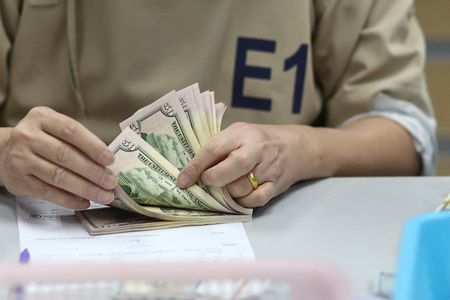By Chris Taylor
NEW YORK (Reuters) – Look at the waves of layoffs happening across America right now, and you are probably pondering something you have not had to think about for quite a while:
Plan B.
Everyone has one, a rough idea of what they will do if Plan A goes totally haywire. With layoffs accelerating – especially in tech, with 140,000 last year and 58,000 so far this year, according to Crunchbase – your Plan B might not be just a theory anymore.
You may have to take it out of the drawer, dust it off – and put it into action.
To help you do that, there is the timely new book “The Great Money Reset” from Jill Schlesinger, CBS News business analyst and host of the “Jill On Money” radio show and podcast.
“It’s always smart to ask yourself, ‘What would happen to me if I lose my job today? How would I navigate that, and what should I be doing right now to prepare?’” Schlesinger says. “Because life is never a straight line. Careers zigzag – and so does life.”
In fact, it is not just a layoff that can lead to a Great Money Reset, a moment where you have to take stock and re-evaluate everything in your financial life. It could be a health issue, a divorce or a hundred other sticky issues life will throw at you.
In other words, the question is not whether a Great Money Reset is coming your way – it is when.
So as you sit down and think through the elements of a financial reboot – spending, saving, career path, retirement outlook, and more – here are a few factors to consider.
SMALLER STEPS ARE OK
Many people make the cognitive error that a Plan B has to be a huge leap, entirely different from the career path they are already on. Not necessarily so.
It might involve more modest steps you can take right now – like taking courses to acquire new skills, or trying out a different job at the same company, or testing out a more flexible work schedule.
“A Plan B doesn’t mean you have to chuck your whole career,” Schlesinger says. “Maybe it just means you don’t want as much pressure, and don’t want to work as many hours.
If you are close to retiring, look into consulting opportunities at your employer. You might lose some benefits, but stay with the company and generate income for a longer period, Schlesinger notes.
OVERHAUL YOUR SPENDING
The amount you are spending, or not spending, is going to determine the number and quality of your Plan B options. If you are already juggling a huge house payment and a lavish lifestyle, you could find yourself in real trouble.
On the flip side, if your monthly overhead is low – downsizing your home, trading in the fancy ride – then you have the flexibility to try something new, perhaps an entrepreneurial venture.
“I don’t care how you choose to spend your money, just be conscious of how you’re spending it,” says Schlesinger. “Are there some things you would be willing to give up? As the pandemic taught us, prioritize what is really important in order to be happier.”
BE CAREFUL WHAT YOU WISH FOR
Many people’s Plan B involves finally starting their own company, instead of working for somebody else. Which is great – just be aware of what you are getting into.
“Owning a company comes with a lot of risk, and it may not be for you,” says Schlesinger. “I was a business owner earlier in my career, with a financial planning firm. It was really hard, and I didn’t like it. I felt so burdened and fearful for all the people who worked for me.”
PREP FOR PLAN C, D AND E
An all-or-nothing approach to Plan B is usually a mistake, since life rarely happens the way we expect. Think about multiple different pathways you could take.
Schlesinger likes to map out “best-case, middle-case, and worst-case” scenarios. In fact, that’s exactly what she did in her own career.
“I started out in financial planning, and I figured if I couldn’t get things started in media, I would go back to that,” she says. “I laid a few different scenarios out, looked at the money I had, and gave myself a six-month runway to see what would happen. That’s how I approached my reset.”
(Reporting by Chris Taylor; Editing by Lauren Young and Jonathan Oatis; Follow us @ReutersMoney)

